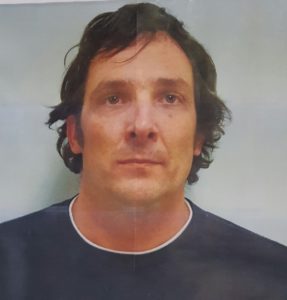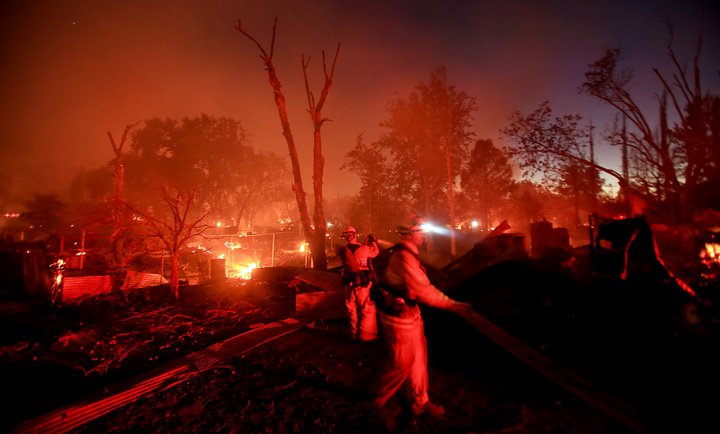Man arrested for starting devastating California wildfire
August 16, 2016

Damin Anthony Pashilk
Authorities have arrested a Northern California man for starting the Clayton Fire, which has burned 4,000 acres and more than 175 structures in Lake County. The alleged arsonist is also accused of starting numerous other fires in the Northern California County.
On Monday, Cal Fire law enforcement officers arrested Damin Anthony Pashilk, 40, of Clearlake on 17 counts of arson for fires he started over the last year, according to Cal Fire. The arson charges relating to the Clayton Fire carry enhancements because of the destruction of homes and businesses.
“The residents of Lake County have experienced senseless loss and endured significant hardship over the past year,” said Cal Fire Chief Ken Pimlott. “Mr. Pashilk committed a horrific crime, and we will seek prosecution to the fullest extent of the law. My thoughts continue to be with the people of Lake County during this difficult time.”
Pashilk allegedly ignited the Clayton Fire Saturday evening near Highway 29 and Clayton Creek. It has threatened about 1,500 structures. The fire is currently 20 percent contained.
Cal Fire is currently battling a total of five fires. Those include the Soberanes Fire near Big Sur and the Chimney Fire in San Luis Obispo County by Lake Nacimiento.
As of Tuesday morning, the Soberanes Fire has burned 76,017 acres and is 60 percent contained, while the Chimney Fire has burned 6,400 acres and is 10 percent contained. Cal Fire has said the Soberanes Fire was caused by a person who lit an illegal campfire. The cause of the Chimney Fire remains under investigation.
Like Lake County, the city of San Luis Obispo has had numerous cases of arson over the last couple years. San Luis Obispo police have arrested two homeless men for starting fires this year, but dozens of suspected arson cases remain unsolved.

Clayton Fire






The comments below represent the opinion of the writer and do not represent the views or policies of CalCoastNews.com. Please address the Policies, events and arguments, not the person. Constructive debate is good; mockery, taunting, and name calling is not. Comment Guidelines